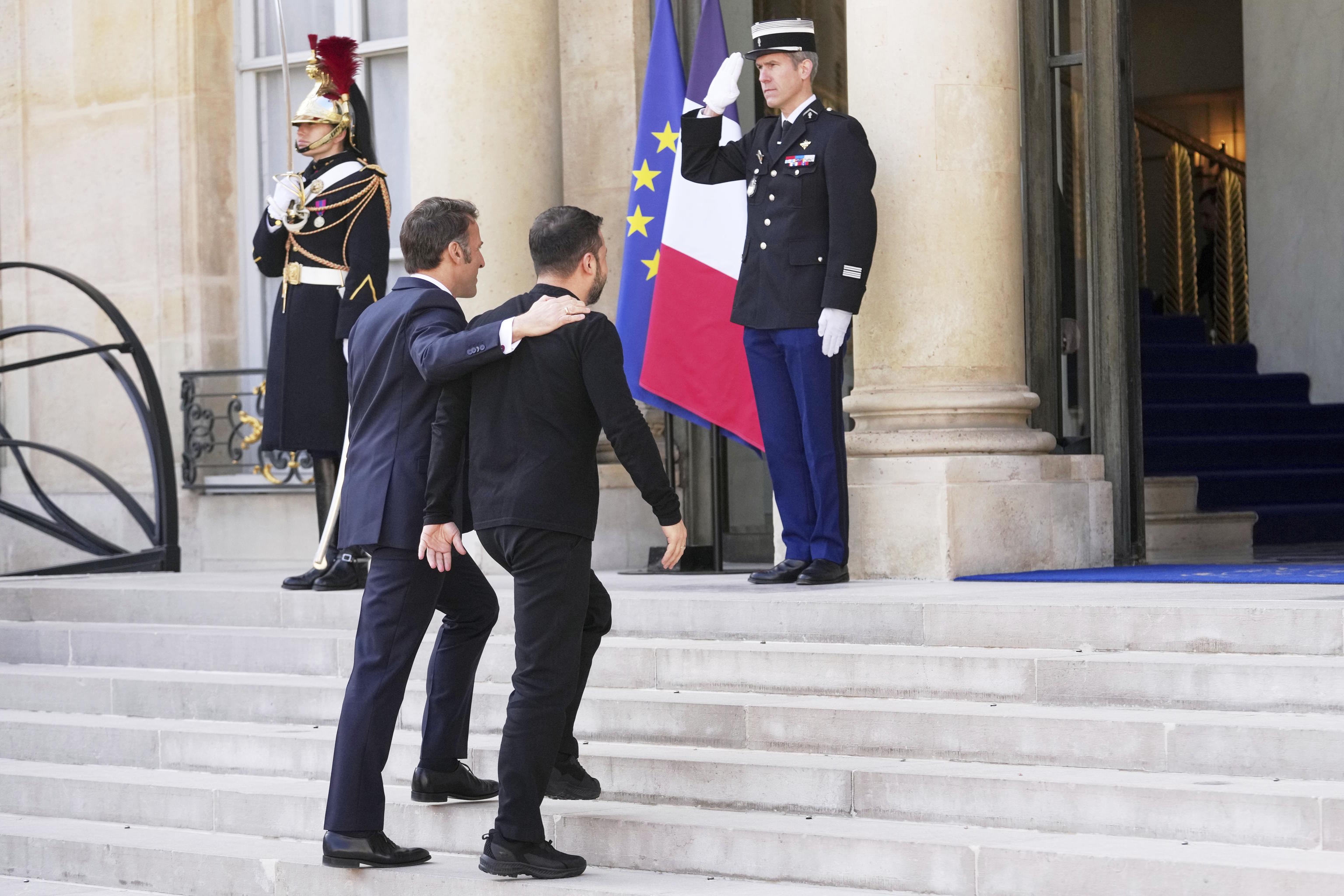Emmanuel Macron has managed to gather over 30 European leaders in his call in Paris for the volunteer coalition in support of Ukraine, with the presence of Volodimir Zelenski. However, the French president and British Prime Minister Keir Starmer, the other main promoter of the idea, are facing significant divisions among allies regarding the creation of a hypothetical "peace mission" with European soldiers in Ukraine.
The creation of the so-called reassurance force of European countries, which could be composed of up to 30,000 soldiers, will be a focal point of the discussions during the meeting, which is also attended by Spanish Prime Minister Pedro Sánchez. Italy and Poland have been the countries that have shown the most resistance to the idea so far, integrated within the set of "security guarantees" that allies demand after a hypothetical peace agreement.
During his bilateral meeting with Zelenski, which served as a preamble to the summit, Macron strongly criticized Russia for the recent aggressions and its "desire for war," announcing an additional $2 billion in military aid to Kyiv. Another objective of the Paris meeting, he emphasized, will be the establishment of a framework for "a sustainable and enduring Ukrainian army."
"Here, there is only one aggressor country, Russia, and one country that resists, yours," Macron said in his press conference with Zelenski. "Russia's aggressiveness has a very direct impact on our security in Europe. We are in a decisive phase to end the war of aggression. I appreciate what President Trump has done."
Macron has promised "transparency with American partners" at the meeting held today in Paris and has committed to informing Trump by phone at the end of the day. In the early afternoon, in his renewed role as the virtual "commander-in-chief" of European rearmament, he will address the media at the Élysée Palace.
Prime Minister Keir Starmer, on the other hand, highlighted the contrast between "Russia's empty promises and Zelenski's willingness to sign a one-month truce, as proposed by the allies." "Putin has shown that he is not acting seriously in the peace talks," Starmer declared in the countdown to the volunteer coalition summit. "He has played with the ceasefire in the Black Sea, despite the good faith of all parties, and continues to launch devastating attacks against Ukraine."
The previous day in Paris was marked by controversial statements to the AFP news agency by Zelenski's presidential advisor Igor Jovka, which caused some concern among the allies. "We do not need peacekeeping missions," Jovka warned. "Ukraine does not need European soldiers ready to fight. It is not the quantity that matters, but the willingness to fight and defend, to be equipped, and to understand that Ukraine is an integral part of European security."
"We will discuss the European contingents," Zelenski acknowledged in statements to Le Figaro. "We must define our needs and know who is willing to send troops, how many, and for how long. We know it is a difficult and important issue. Some countries do not have the capacity, and others are not willing to do so without American guarantees."
"We need a response against Russia," declared the Ukrainian president after his previous meeting with Macron, in which he called for European rearmament. "I am grateful to Europe, which supports our defense. It is important that each country can develop its defense industry. The more production there is in the defense sector, the more lives will be saved."
